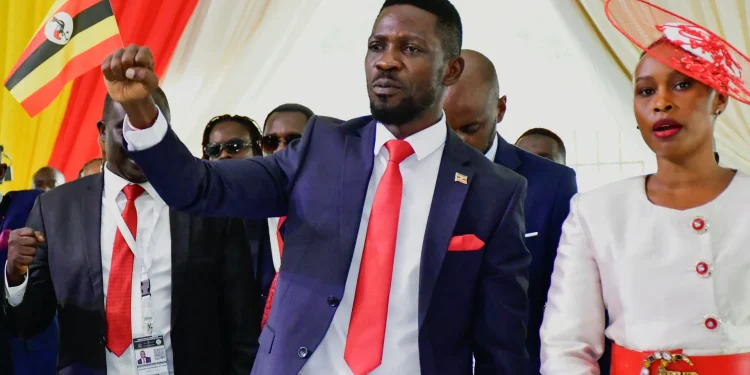By Nnanda Kizito Sseruwagi
The National Unity Platform (NUP) manifesto is a treatise of grievances. Manifestos are supposed to be public declarationsof policies and aims of a political party or candidate, not a bill of complaints.
It is not that there are no legitimate grievances against President Museveni’s government. There are many. Museveni himself, many of his ministers, and even his son, Gen. Muhoozi Kainerugaba, are always complaining about the shortcomings of the NRM government.
At one point, Museveni complained that Uganda Police Force was rotten to the core, and he overhauled it. Muhoozi has decried government corruption, incompetence and impunity several times. When you listen to Ofwono Opondo, formerly the government spokesperson, you would think he was the leader of a major opposition political party. There is more honest internal criticism within the NRM. Members of NRM have several grievances against their Party and government.
So, Bobi Wine cannot score political points simply by criticising Museveni’s government. It is more self-critical than he could ever criticise it.
His manifesto cannot be judged based on how virulently it decries Museveni’s failures.
Even worse than the criticism that Bobi’s manifesto makes against Museveni, his party lacks the internal democratic space that many in the NRM enjoy. While Muhoozi can complain against his father’s government and even lead a civic group to call for reform, while Rebecca Kadaga and Amama Mbabazi can face off with Museveni and still have room in the party, while Ofwono Opondo can criticise the NRM as though he is not its spokesperson, Bobi Wine’s party members must tow his line to the extreme. No person in NUP can dare criticise Bobi.
When Andrew Mwenda, as early as 2018, was criticising Bobi’s People Power for being an intolerant cult whose leaders were interested in power rather than democracy or national transformation, and whose supporters must exhibit ideological purity or get purged, many accused him of bias. A few years down the road, member after member, friend after friend who disagreed with Bobi Wine suffered his intolerance as the Old Man had warned. Mathias Mpuuga, Medard Ssegona, Allan Ssewanyana, Abed Bwanika, Joyce Bagala, Kazibwe Bashir Mbaziira, Twaha Kagabo, Kassiano Wadri, Asuman Basalirwa, and many other allies have fallen out with Bobi Wine due to his extremism and hypocrisy.
We need to ask, for someone without state authority, why are your colleagues already distraught with your abuse of power and intolerance? In one video clip of Asuman Basalirwa’s interview at Sanyuka TV recently, he says, “With that attitude…if Mr Kyagulanyi becomes president, either of three things could happen to me. Either he will exile me, or imprison me, or kill me… with that intolerance of his…” That is the extremism that Mwenda had always warned about Bobi Wine and his “army of emotional desperados.”
Turning to his manifesto, it does not help how much criticism Bobi can level against Museveni. As I have stated already, Museveni himself, his family and his party are very intimate with their failures. They recognise them and complain about them too. So, Bobi cannot be a champion of simply recognising Museveni’s failures. In any case, Museveni would be a better candidate as someone who has ruled for such a long time, and in the process, come to a realisation of the limitations of power, since he still fails to execute government programs due to corruption and other challenges, which he cannot solve by simply wishing so.
If Bobi Wine thinks presidential authority can do everything, then he will be a dictator of unmitigated proportions if he becomes president. Museveni’s failures are partly a result of compromises and tolerance. To make the necessary concessions to keep all disparate sections of Ugandan society and the ruling elites together, Museveni has had to turn a blind eye to a lot of wrongs. He could choose to send everyone to jail and have his government collapse, or use sticks and carrots to reward and punish, and maintain stability in a plural society like Uganda.
Uganda is too poor to be governed through the sufficient provision of public goods and services as a vehicle for legitimacy, and too heterogeneous to maintain unity through force alone. So, Museveni has had to walk a tight rope to keepus together as a diverse, underdeveloped country. The compromises he has had to navigate largely explain the dysfunction of his government, but also its survival.
Bobi Wine’s self-righteousness and childish moralism in politics explains the disunity in the National “Unity” Platform. It also explains why he would be a tyrant if he became president, as Asuman and others have warned.
The love of power over democracy among some opposition politicians is what drove them in the last election to support Bobi Wine full throttle, because he was riding a popular political wave within some areas in the country, which guaranteed them electoral success. They didn’t care whether he was sincerely a good leader. Now, many have realised this time that they groomed a wolf that has grown to eat them.
Ideas are important. Bobi’s manifesto is thin on ideas and large on rhetoric, because he understands that it is not ideas that built the People Power wave but emotions and anger. So, he wrote a manifesto reflecting angry grievances. If we do not call out this shortcoming, it is likely to mislead more supporters who will be blinded by the legitimacy of his grievances and lose sight of the shallowness of his ideas and lack of democratic principles.
Chapter one of the NUP manifesto is on restoration offreedom, constitutionalism, and human rights. Structurally, approximately 70% of its content documents Uganda’s democratic decline, and 30 % outlines banal solutions. It is simply a human rights report, not a political manifesto. It excessively repeats the same challenges with Uganda’s democracy. Its policy proposals lack depth and detail. It does not articulate any inspiring, affirmative vision of what Uganda could become. In the next article, I will analyse more chapters of the NUP manifesto.





